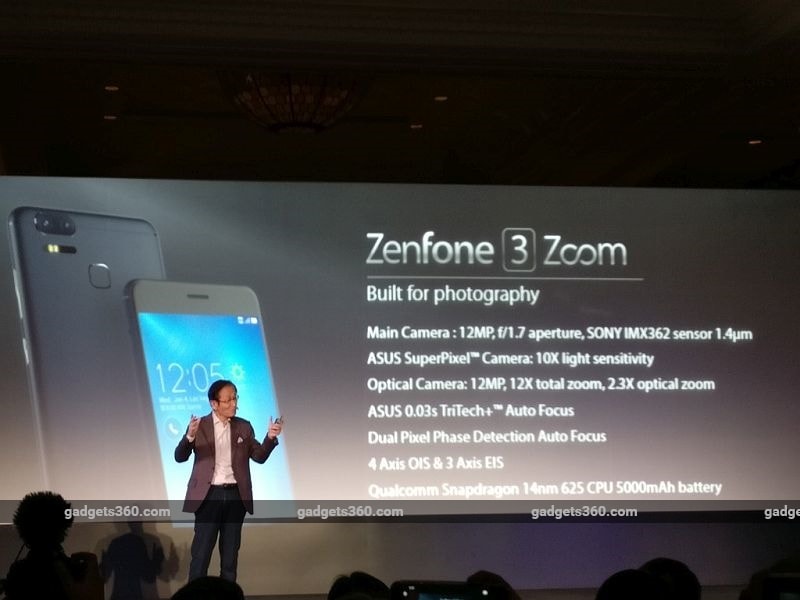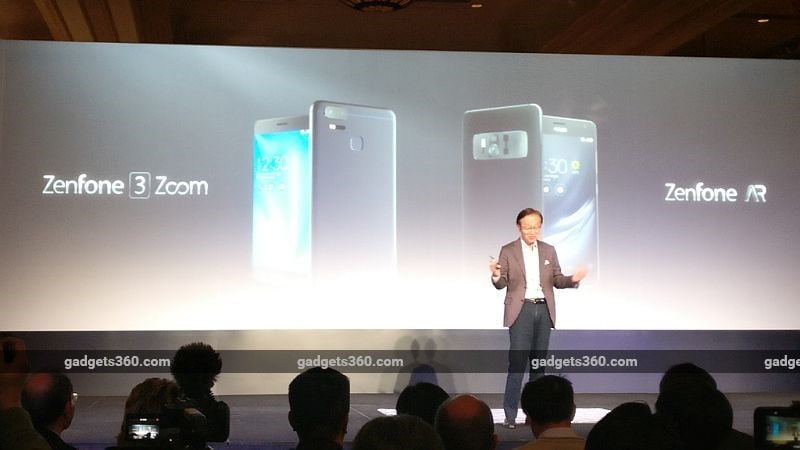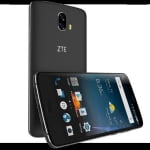
Asus has launched the ZenFone AR smartphone with 8GB RAM, as well as support for Google’s Tango augmented reality programme and DayDream virtual reality software at the ongoing CES 2017 tech expo. Along with the Asus ZenFone AR, the company unveiled the ZenFone 3 Zoom camera smartphone with 5000mAh battery at the event.
The new Asus ZenFone AR smartphone with AR+VR functionalities, which had been outed by Qualcomm a few days ago, will come in multiple variants; Asus has confirmed at least one version with 6GB of RAM.
Asus ZenFone AR, like the other Tango device – the Lenovo Phab 2 Pro – is designed around machine vision with a camera and sensor setup that provides motion tracking, depth perception, and area learning. Unlike other ZenFone smartphones, the Asus ZenFone AR sports a fingerprint scanner at the front embedded in the home button. It sports a 5.7-inch Super AMOLED QHD (1440×2560 pixels) display which is likely to play major role in virtual reality. The company adds that the Asus ZenFone AR packs 79 percent screen-to-body ratio.
Under the hood, Asus ZenFone AR packs the high-end Qualcomm Snapdragon 821 processor that the company claims has been customised for Tango. With Qualcomm announcing the new Snapdragon 835 SoC, the Snapdragon 821 processor choice for Tango-enabled and Daydream-ready ZenFone AR smartphone looks dated. Asus at the event confirmed that the company will have exclusive Asus ZenUI VR 360 degree app support on PhotoCollage, Gallery, and ZenCircle apps.

The Taiwanese company also confirmed that the Asus ZenFone AR features vapour cooling system to avoid overheating. Asus ZenFone AR’s camera sports a 23-megapixel Sony IMX318 module with TriTech+ autofocus system, dual-PDAF, second-gen Laser Focus, and continuous-focus. The rear camera supports 4-axis OIS (optical image stabilisation) as well as 3-axis EIS (electronic image stabilisation) for video recording alongside support for 4K video recording. The company has opted for a 8-megapixel front-facing camera with an f/2.0 aperture and an 85-degree wide angle lens.
The Android 7.0 Nougat-based Asus ZenFone AR will be available in the Q2 2017, with the company to announce prices near to market launch. Asus is yet to reveal the entire specifications details for the ZenFone AR. Other specifications revealed include up to 256GB of inbuilt storage that’s expandable via microSD card (up to 128GB) in a hybrid dual-SIM (Micro+Nano) configuration; a 3300mAh battery; USB 2.0 Type-C port, as well as Bluetooth v4.2 and Wi-Fi 802.11ac connectivity.
Asus ZenFone 3 Zoom, on the other hand, is being touted as “thinnest and lightest” smartphone featuring a 5000mAh battery, which is also a highlight of the device. It is just 7.9mm thick, while weighing 170 grams. Much like previous ZenFone Zoom models, the Asus ZenFone 3 Zoom will double up as a power bank and can charge other smartphones.
For specifications, the Asus ZenFone 3 Zoom features a 5.5-inch full-HD (1080×1920 pixels) AMOLED display with Corning Gorilla Glass 5 cover on top. It is powered by a Qualcomm Snapdragon 625 processor. Just like with the Asus ZenFone AR, the company has not revealed complete details of SKUs – though it has mentioned a top-end 4GB of RAM and 128GB storage configuration.
Asus ZenFone 3 Zoom sports a dual rear camera setup, with one 12-megapixel rear camera with Sony IMX362 sensor, and f/1.7 aperture, and the other 12-megapixel rear camera featuring a 2.3x optical zoom – allowing for a total 12x zoom. Like the ZenFone AR, it features a TriTech+ autofocus system, dual-PDAF, 4-axis OIS, and 3-axis EIS. At the front, the ZenFone 3 Zoom packs a 13-megapixel camera with a Sony IMX214 sensor, an f/2.0 aperture, and a screen flash feature.

The Asus ZenFone 3 Zoom will be available starting February 2017 and prices for different variants will be announced at the time of local release.
[“source-ndtv”]










